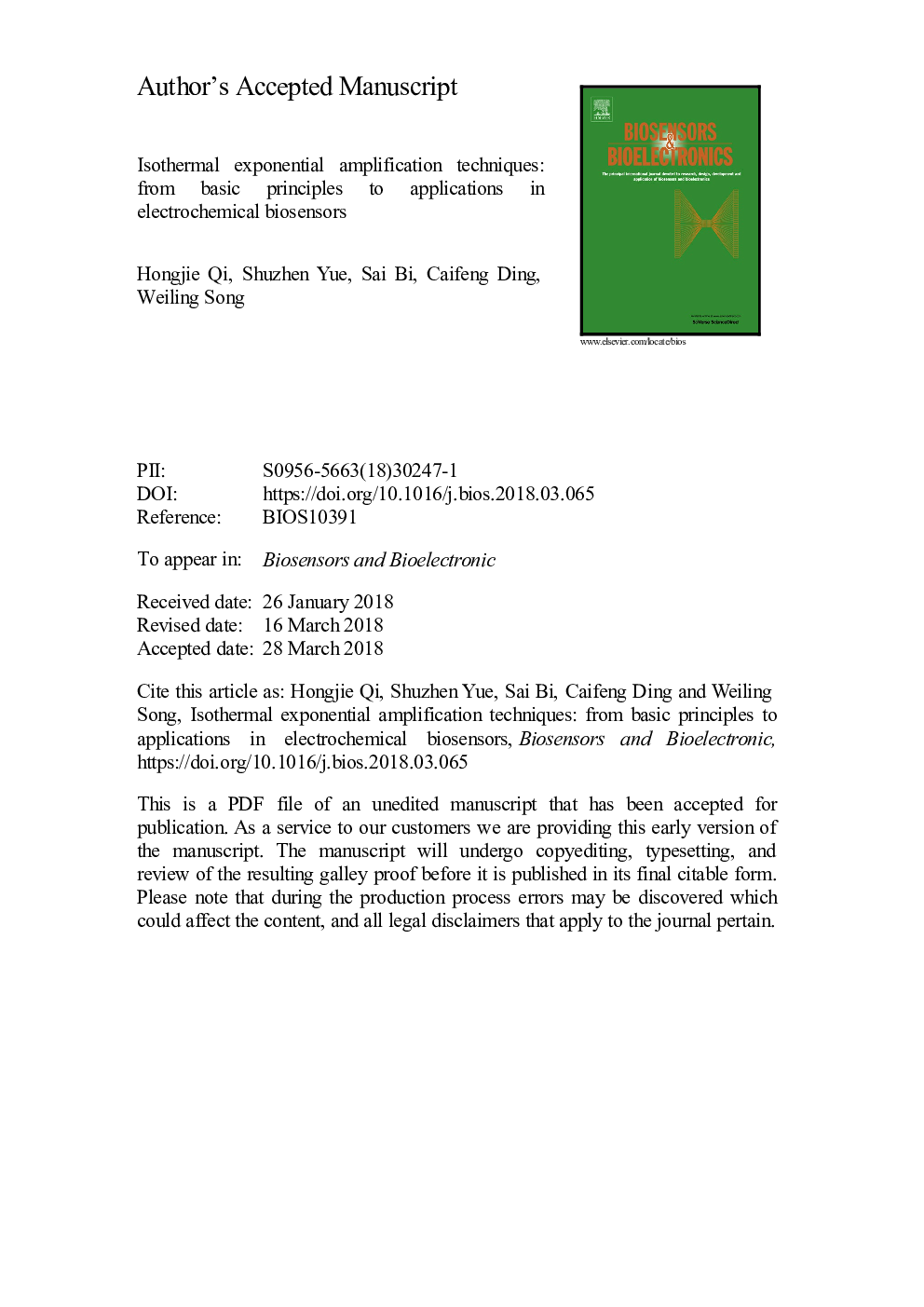| Article ID | Journal | Published Year | Pages | File Type |
|---|---|---|---|---|
| 7229390 | Biosensors and Bioelectronics | 2018 | 39 Pages |
Abstract
As a conventional amplification technique, polymerase chain reaction (PCR) has been widely applied to detect a variety of analytes with exponential amplification efficiency. However, the requirement of thermocycling procedures largely limits the application of PCR-based methods. Alternatively, several isothermal amplification techniques have been developed since the early 1990s. In particular, according to the reaction kinetics, isothermal exponential amplification techniques possess higher amplification efficiency and detection sensitivity. The isothermal exponential amplification techniques can be mainly divided into two categories: enzyme-based isothermal exponential amplification and enzyme-free isothermal exponential amplification. Considering the advantages of high sensitivity and selectivity, high signal-to-noise ratio, low cost and rapid response time, exponential amplification electrochemical biosensors have attracted considerable attention. In this review, we introduce the basic principles of isothermal exponential amplification techniques and summarize their applications in electrochemical biosensors during the past five years. We also highlighted the present challenges and further perspectives of isothermal exponential amplification-based electrochemical biosensors.
Keywords
Related Topics
Physical Sciences and Engineering
Chemistry
Analytical Chemistry
Authors
Hongjie Qi, Shuzhen Yue, Sai Bi, Caifeng Ding, Weiling Song,
